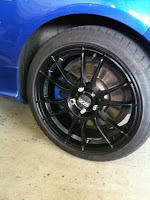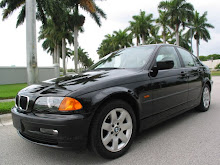
A debate which has gone on between car enthusiast since, the invention of the automobile, is the argument that lowering the curb weight on a car increase the engines horsepower. In terms of ratios, the most agreed upon number is 10:1, meaning that for every ten pounds of weight you shed off a car, the engine is now capable of generating one more horsepower. In my personal opinion, I do believe weight loss plays a pivotal role in giving your car the extra edge against other competition on the street. I have actually experimented with lowering the weight on a vehicle to see if there are any performance benefits.

I previously owned a 2008 Volkswagen R32 which produced 250 hp at the crank, accompanied by 236 torque. The first modification that was done to the vehicle was the replacement of the bulky stock wheels. The stock wheels weighed nearly 26.8 pounds each wheel, bringing the grand total to about 108 pounds for all four wheels. I decided to buy O.Z. Racing wheels as replacements for the stock wheels fro two reasons; they are a very strong design and weigh nearly 10 pounds lighter, per wheel, compared to the stock wheels. The O.Z.'s were the Ultraleggera model wheel which has a fork like design that uses a minimal amount or metal, reducing weight. Each Ultra weighed about 17.1 pounds, a significant amount less than each stock wheel. Just by replacing the wheels, I lowered the cars curb weight by about 40 pounds.

The second modification I did was replace the stock exhaust system with a lighter, less restrictive system made by MagnaFlow. MagnaFlow offered two types of cat-back exhaust systems for the MkV R32, one with a resonator (dampens exhaust noise) and one without a resonator; naturally I chose the one without the resonator. As compared to the stock exhaust, the MagnaFlow weight 11 pounds less! Now that eleven pounds doesn't sound like a lot but you must also remember that the exhaust added performance by being less restrictive. It was less restrictive in the sense that all of the piping was nearly and inch wider in diameter compared to the stock exhaust piping, the muffler was smaller, and the MagnaFlow was non-resonated.

The second modification I did was replace the stock exhaust system with a lighter, less restrictive system made by MagnaFlow. MagnaFlow offered two types of cat-back exhaust systems for the MkV R32, one with a resonator (dampens exhaust noise) and one without a resonator; naturally I chose the one without the resonator. As compared to the stock exhaust, the MagnaFlow weight 11 pounds less! Now that eleven pounds doesn't sound like a lot but you must also remember that the exhaust added performance by being less restrictive. It was less restrictive in the sense that all of the piping was nearly and inch wider in diameter compared to the stock exhaust piping, the muffler was smaller, and the MagnaFlow was non-resonated.
Overall, I shed about 51 pounds of weight off the car which, in terms of the weight loss to horsepower gain ratio, gave the engine about 5 more horsepower. I never put the vehicle on a performance dyno before or after I installed the after market parts so I cannot technically say that there was any particular increase in horsepower. However, I can honestly say that I did notice a little more punch when stomping on the gas peddle, particularly when accelerating from a standstill. In conclusion, I am a firm believer in putting your car on a diet if you want to be able to compete on the streets or on the track. Pulling a little bit of weight away here and there wont ever hurt the car, in fact, it made mine look and sound like something truly special.



No comments:
Post a Comment